Public Involvement in Education and Research (PIER) Partnership
Annual

Annual
2021-22 September 2021-August 2022
Welcome to the 2021-22 annual report for the BU PIER partnership. Every year the annual report provides us with an opportunity to look back at our achievements and impact and to share some highlights from our year. The report covers PIER activity from September 2021 to August 2022 and reflects the full year that we have been in the new Bournemouth Gateway Building in Bournemouth. Our first on-campus PIER activity following lockdown restrictions was on the 7th of September 2021 with eight PIER members on-campus facilitating skills sessions (simulation and challenging communication workshops) in adult nursing and social work. Interactive and co-designed activities which in many ways, set the tone of the year ahead.
As well as a change of building, 2021-22 reflects a greater focus for the PIER partnership on co-production with even more opportunities for PIER members to shape, design and lead education and research activities from the start. From the BIG PIER members meetings; to co-authoring book chapters and journal papers; co-designing and delivering a Master’s level unit; becoming co-researchers and being approved as a lived experience PhD supervisor, PIER members have embraced a whole range of opportunities to influence and enhance health and social care research, education and practice. With this in mind, this year’s annual report has been written by PIER members and community partners to amplify these experiences and viewpoints. Case studies and examples illustrate how we work together across our community to embed lived experience expertise in all aspects of health and social science education and research at BU and what impact this is having. We hope you enjoy reading about these collaborations.
A highlight for us this year was the PIER partnership team being nominated and winning a Vice Chancellor Award for Inclusivity. Dr Nyman nominated PIER stating that ‘BU PIER have raised the bar with involving service users and carers. They do so in a professional and systematic way that respects the voices of non-academics. They promote practices of a high standard (e.g. care in the way people are approached, reimbursed for their time, and inclusion into programmes across the university). They have provided a template of excellence for others to follow’. Recognition across the university was further reinforced when we were awarded 12 months funding for an additional PIER officer and a part time secondment for me in my academic lead role to develop opportunities for PIER involvement in research across the university as a whole. This increase in staffing is already enabling us to create opportunities for user led and co-produced research with people with lived experiences that are currently under-served by research. Examples are shared throughout this report.
All awards and recognition reflect the great teamwork by the PIER officers, members, community partners, students and BU staff and the high regard in which the PIER partnership is held across the university. I would like to take this opportunity to acknowledge the incredible commitment, passion and expertise of the PIER team, members and organisations we have collaborated with over the last year. You are integral to the success of education and research at BU. We are excited by the many ideas you have to improve the relevance, quality and impact of health and social care research, practice and education at BU and we can’t wait to work with you over the coming year. Thank you for the opportunity.
Dr Mel Hughes Associate Professor in Social Work Academic Lead for BU PIER partnership
The PIER partnership is a collaboration between people with lived experience, academics and students at Bournemouth University. As experts by experience, we bring unique perspectives, knowledge and insight to health and social science education, research and practice, leading to improved outcomes for all involved.
For those who are most affected by health and social inequalities to lead the way in shaping responses and improving outcomes.
The BU PIER partnership is underpinned by our shared values and goals of humanised and relationship based models of collaboration. Our work is based on respect and meaningful engagement where everyone involved feels valued and respected.
To involve people with lived experience as consultants; reviewers; researchers; facilitators and assessors due to the expertise they have and the perspectives they can share.
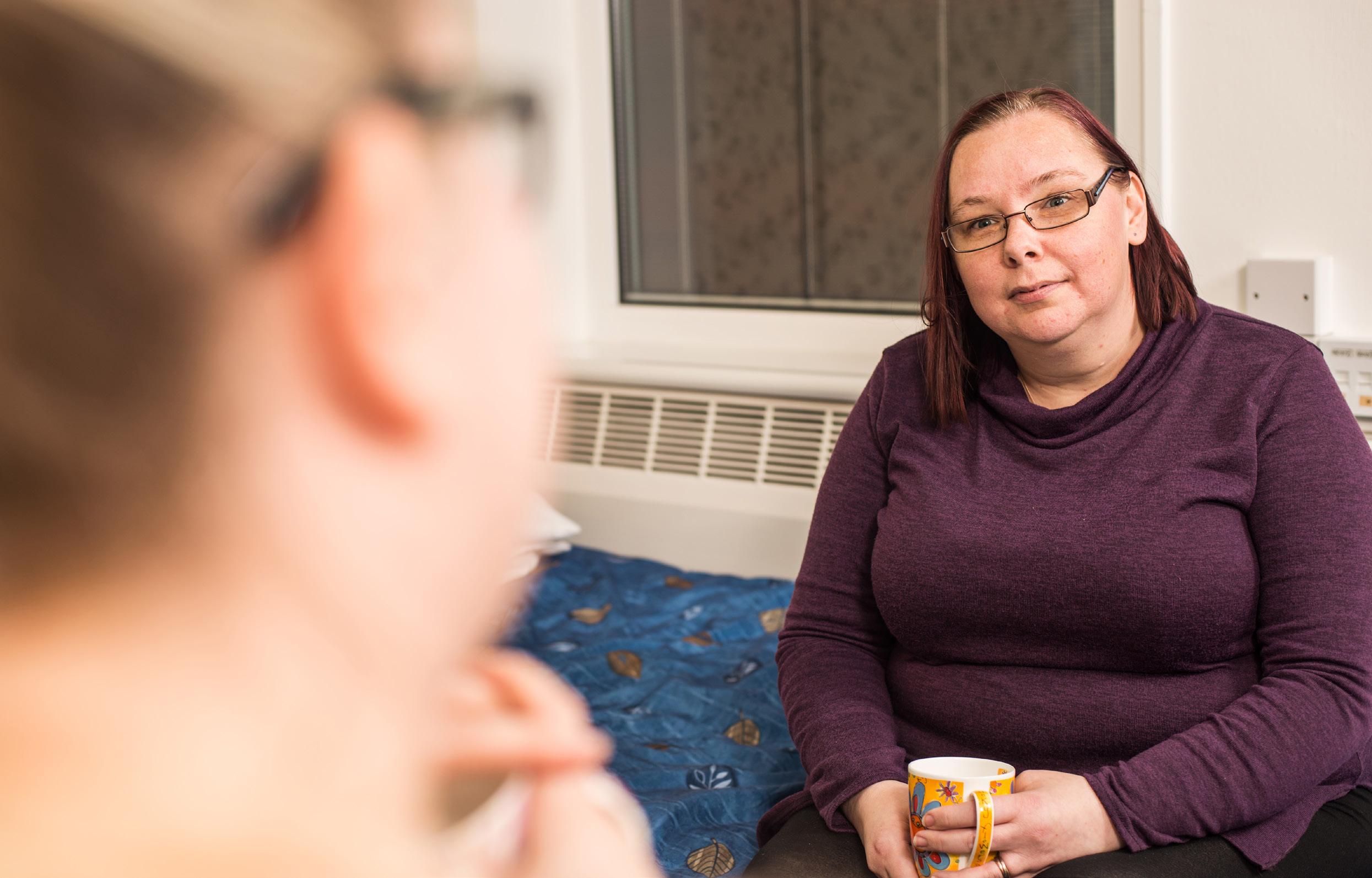
To develop inclusive models of collaboration in education, research and practice which are based on parity of involvement; giving people a voice; and enabling a wide range of people to participate in ways which work best for them.
To broaden the range of voices collaborating in research, education and practice; in particular, marginalised and seldom heard groups.
In 2002, when I spoke to mental health nursing students, sharing my own lived experience, I could not have predicted the growth of public involvement in education and research at BU.
There have been some particular highlights for me in 2021-2022; one being seeing a return to some face-to-face learning with our large cohort of nursing students. In the Clinical Pharmacology and Medicines Management unit, PIER members developed digital resources and worked with students, exploring the challenges people encounter when taking multiple medications. Students gave very positive feedback including this comment:
“Hearing first hand experiences are essential when learning how to give patient centred care. It really helps to remind us why we are doing this and the impact we can make.”
The first cohort for the Level 7 Public Involvement in Research course successfully completed in July. PIER members were integral to the design and delivery of the course, involved in tutorials and the assessment of students’ work. It was so rewarding to see the transformative learning that took place throughout.
Perhaps the real highlight of the year was for the PIER team to receive a Vice Chancellors’ award. Our nomination included these words:
“The BU PIER Team promote high standards of practice and exemplify inclusivity by ensuring that service users have a voice in practice, education and research.”
It is important to acknowledge that the real success of PIER is due to the energy, enthusiasm and commitment of the carers and service users who willingly give their time and themselves to enhance the educational experience of our students and shape future research. It was humbling to receive the award but a joy to see the work of PIER being recognised and celebrated. Long may it continue!
2021-2022 has been about supporting PIER members to engage with us both face to face as well as virtually and balancing those methods for each individual needs.
Some of the highlights of the year for me have been:
• Rewriting our job descriptions from Co-ordinators to BU PIER Officers which was much needed to better reflect our job roles.
• Establishing a first time link up with the CQC (Care Quality Commission) on the Supported Living Improvement Coalition. This is an exciting collaborative project to drive improvement in supported living options, to achieve together greater consistency in safety, quality and good outcomes for people.
Two BU PIER members with this background experience have now joined and are informing the work of the coalition.
• Working with the social work placement team and PIER members in shaping design, assessment, quality assurance and teaching in practice learning through presentation marking, portfolio reading and co-creating new resources. This ensures the journey for student social workers closely aligns with service user and carer priorities, making the impact of their practice real, and providing diverse and rich feedback for their development.
• Increasing the number of BU academics I have worked with from 17 last year to 26 this year.
• Developing the new BU led physiotherapy placement sessions with unit lead Clare Shearer from June-July 2022 with 11 PIER members
• Working with leads Karen Butters and Joanne Coleclough to develop the BU Staff Carers group
• Vice-Chancellor’s Staff Awards 2021 Inclusivity Award (PIER) and Excellence Award (social work)
• Welcoming another BU PIER Officer, Kate Jupp, to our team to develop involvement in research.

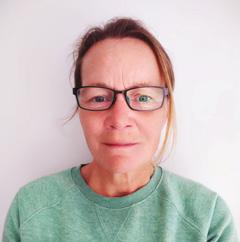
I joined PIER in July and the focus of my role is to support and build the capacity of meaningful public involvement in health and social care related research across BU. I have received such a warm and supportive welcome from the PIER team, PIER members and the wider BU community.
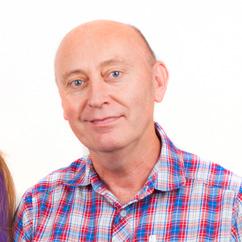
Despite only being in post for two months, it has not been difficult to identify highlights so far, though harder to choose which to feature. I am excited to be building relationships with community organisations that are working with and making a difference for those experiencing acute and chronic health needs, and those living in isolated rural and coastal regions with long-term and entrenched consequences of social and economic deprivation and isolation. Through these networks, we are developing partnerships with a diverse range of community researchers, sharing, and building on different skills and expertise, and supporting the best possible inclusive community-led research.
I feel privileged to have joined Mel, Pete, and Angela in the PIER team, at what is an exciting time for advancing meaningful public involvement in research across the university; supporting researchers to build and nurture relationships with individuals with lived experience and community organisations, to enhance the impact of their work.
I realise and value the fortunate position I am in, in being able to say I both enjoy and am excited about my work.
In 2021-22 we collaborated with 34 community organisations in both education and research activities. This greatly enhanced the real-world learning for students and the real-world application and impact of BU research. We have chosen four examples to share in this year’s report. These are collaborations with the International Care Network; South Dorset Research group; Communi-T; and collaborations for an OT (occupational therapy) community placement.
ICN is a Bournemouth-based charity supporting refugees, asylum-seekers and vulnerable migrants. We offer a variety of types of support, from ESOL classes to conversation groups and homework clubs, benefits advice, and immigration advice. We also deliver contracted resettlement and support services for BCP Council. My role is the Community Support Manager – I oversee our resettlement work with Syrian and Afghan families, as well as the community support we offer to vulnerable women and their families.
Our involvement with the PIER partnership in 2021-22 included working with Mel and Ahed on a book chapter for a social work textbook; providing staff to deliver two humanisation workshops as part of the nursing programme; and providing training for a cohort of social work Masters students.
ICN sees real value in our partnership with Bournemouth University PIER partnership. We really value seeing others work to improve the inclusion of those we serve, and we know that any insight we can offer will only serve to improve the services that can then be delivered i.e. giving nursing students an insight into the life of a refugee before arriving in the UK will provide them with knowledge they can tap into when facing the daunting prospect of speaking to a refugee on the wards who has little experience and obvious trauma.
I was excited to be involved in the social work textbook (Social Exclusion in the UK: the lived experience) because of the direct impact it will have on those studying. I coauthored a chapter with Ahed, about her lived experience
In July 2022 South Dorset Research Group published Forgotten Towns – Weymouth, Portland and the coastal economy, the first detailed assessment of economy and community in South Dorset. This initiative, which has implications for policy making in the most deprived area of Dorset, has drawn on sustained support from academic colleagues involved in the PIER partnership.
Offering advice and guidance on the research process and launching the report at a webinar organised at Bournemouth University, colleagues of the PIER partnership engaged directly with community organisations in Weymouth and Portland. This brought not only academic expertise but also invaluable links to others concerned with community wellbeing in an area
as a refugee. The book is mainly about giving people an opportunity to second-guess their assumptions or think twice about the way they view those labelled as “refugees”. We continue to work with BU because we feel they value our expertise and the work we do and have established in the community, and they see that we can add value to their teaching in a way that will directly impact students’ practice. They also respect our time-constraints and limitations and do well at communicating in advance and not expecting last minute contributions from us!
My colleague, who delivered the humanisation workshops, said she really valued the questions they were asked and thought the engagement was really encouraging. It is really encouraging for us, as professionals, to see others caring about getting these things right and communicating well with this vulnerable group of individuals and families. I personally really loved the time I had to spend with Ahed helping her to edit and craft her story for the book, as I got to talk about a huge range of life experiences and learn lots about her!
I really appreciated the way Mel approached working with Ahed. Mel made sure that her contribution and time was valued, and it was made really clear that she was under no obligation and could share as much or as little as she liked. I felt she was respected and the communication was superb the whole way through!
Rachael Sawers Community Support and Volunteer Managerthat stands at or near the base level in national indices for family poverty and social mobility.
South Dorset Research Group is a voluntary collaboration of former academics and local professionals in education and social work. The Group wishes to place on record its appreciation to the PIER partnership - and to colleagues at the Centre for Seldom Heard Voices who helped to facilitate the Forgotten Towns project. Their support has enabled further initiatives, including communitybased work with young and vulnerable people in Weymouth and Portland.
Philip Marfleet ConvenorMy name is Jay and I’m a co-founder of a transgender charity called Communi-T. I realised early on in my transition that there was barely any teaching or knowledge around the topic of Trans*. When I came out in 2007, there was absolutely nothing for transgender people locally, so I knew I wanted and had to try and make a difference for other like minds. I was the only out trans man in the community for 18 months before another t-guy came along.

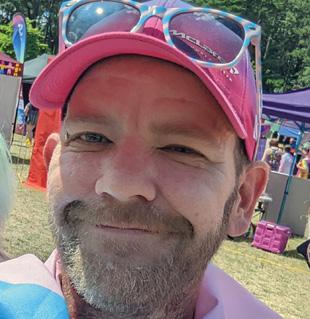
I’ve engaged with the PIER partnership for a good few years now, I help contribute to the humanisation workshops with nursing students as well as teaching various groups of social work students about the lived experience of being transgender. I’ve also delivered many talks to other groups of students too, law, paramedics, midwives and more. I’ll chat with pretty much anyone who will listen without judgement.
My main reason for being involved is to raise awareness of the transgender community and our needs. It’s more important than ever to be enlightening people that we are human beings too, we’re just packaged a little differently. And that we are not scary at all, we’re all trying to find a place to fit. For some reason, a number of people are scared of us which to me is odd, there’s way too much misinformation out there so I like to counter it if I can.
Another huge reason for delivering talks is that every time I’ve met a healthcare professional, I’ve had to explain my trans status before any treatment would commence even

if the treatment was nothing to do with my trans identity. This is frustrating and it delays everything too. If healthcare professionals had prior knowledge, then engaging with them would be so much easier for me and other transgender people.
I really enjoy teaching the students and I know that most will take it with them into their working practice. I also hope they feel strong enough with this knowledge to challenge their co-workers when needed as it is the only way things will change. Start teaching from the bottom up and they will share their experiences with others and gradually transgender people will feel there is a place for us to be.
I guess a standout moment for me is the realisation that I have created some mini trans activists with the students I have met. They are strong enough to challenge everyone/ everything from pronouns to misgendering to signage on toilet doors. I think this is amazing as I know they will make a real difference to our community. What more can I ask for?
Jay Murray Communi-T, Co-founder https://communit.home.blog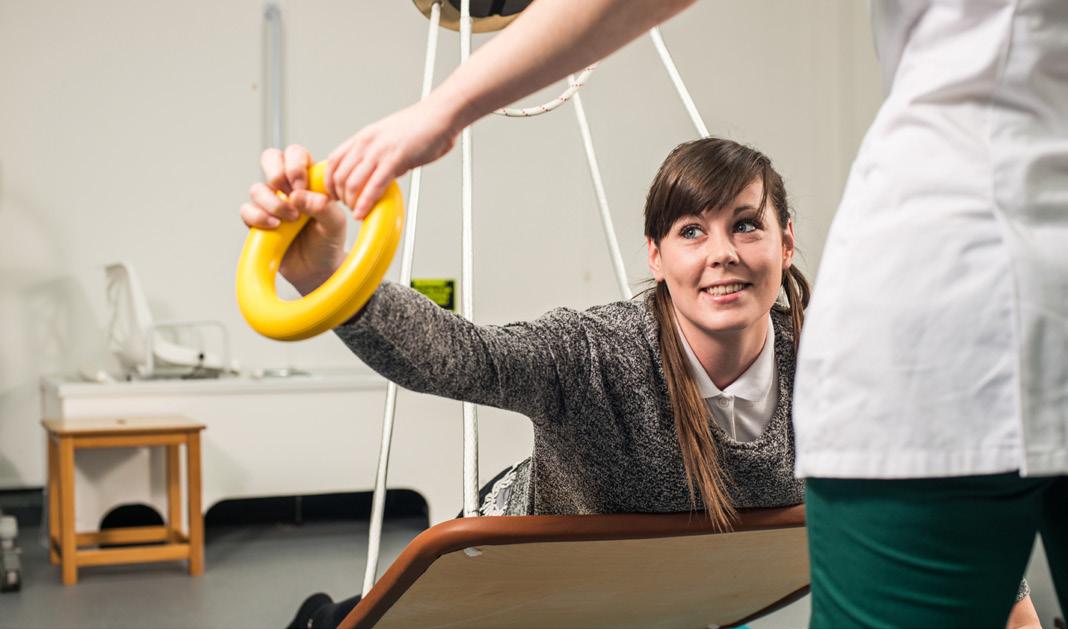
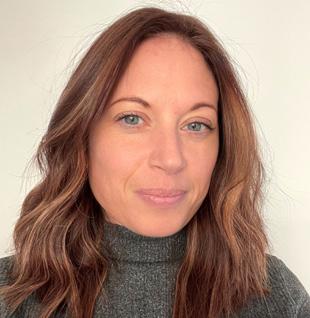 Dr Juliette Truman Senior Lecturer in Occupational Therapy & Health Psychology
Dr Juliette Truman Senior Lecturer in Occupational Therapy & Health Psychology
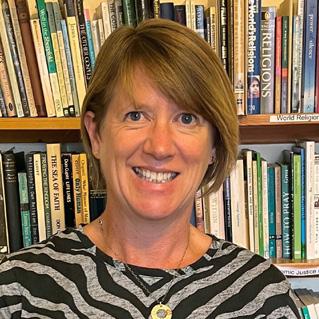

Thank you to all the organisations that supported this educational initiative. I was delighted that this year we were able to collaborate with the PIER partnership to deliver co-created ideas for reducing injustices or marginalised groups in the local community. Occupational therapy students worked with organisations and their service users to hear their unique and powerful voices regarding their experience of health, disability and social injustices that impact on their everyday activities, health and wellbeing. Students developed their communication skills, engaged in and reflected on the lived experience of co-production, which is important to their future careers. They strengthened their unique theoretical perspective and how this might be used to bring about new understandings about marginalised groups and support ongoing change for the communities they had the pleasure to work alongside. Two of the community partners share their experiences below:
Bournemouth, Christchurch and Poole Council (BCP)
Young Carers Team had the opportunity to work with occupational therapy students for a couple of months. The students worked with a small group of 15–18-yearold young carers to discuss what their ideal group would look like. Structured sessions were organised to promote planning of what this age range of young carers would most benefit from within a monthly group. Students supported the young carers by demonstrating their ability to engage with this service user group in an inclusive manner and worked alongside them to develop what a safe space and environment would look like. This work set the foundations for a group to continue monthly that is accessible to all 15–18-year-old young carers providing them with an opportunity for time away from their caring role and to equip them with life skills that will support them into adulthood.
Shellie Robinson Senior Officer– Child Employment & Performance, Young Carers, Alternative Provision Inclusion & Family Services
EDP Drug & Alcohol Services www.edp.org.uk
Reach were approached by Bournemouth University’s PIER Partnership to facilitate a team of occupational therapy students who had been tasked to develop an idea to support engagement and promote health and wellbeing for communities whose engagement is restricted.
Reach is a substance misuse support service in Dorset that offer psychosocial and clinical interventions for anyone whose life is affected by drug or alcohol misuse.
I met with the students and was impressed by their professionalism, insight and enthusiasm. They had two ideas initially and after attending some Reach online groups and following discussions with some service users, they identified a hobby finder website as a useful tool for our service users.
The team had identified that a Saturday evening can be a difficult time for some people to maintain motivation in their recovery and that a social event would be welcomed. This would be a virtual group to include bingo and quizzes, as well as links to local community hobby groups.
The team set up two groups but unfortunately didn’t get any attendees for those sessions and the team had to return to their studies. From our experience of setting up new groups, it often takes perseverance and time for these to become well-attended. There are national recovery meetings at weekends that anyone can attend, but this project has informed us of potential gaps in the support offered and provided useful service user feedback for our service.
Debbie Dennehy REACH Psychosocial Service Manager & West Satellite Team Lead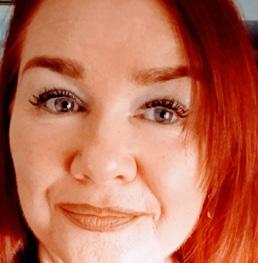
The two PIER member meetings were in November 2021 and March 2022 and we met up several times to organise them. From the beginning we all agreed to have a more light-hearted, interactive approach than previous meetings. We realised we had to make these hybrid to be more inclusive due to the Covid restrictions.
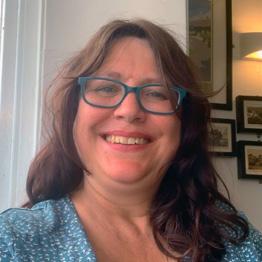


The meetings were entirely run by the four of us. We were passionate about being seen as ‘people’ and to emphasise that we are more than our conditions and just PIER members. We asked both Angela and Peter to tell us about a day in the life of; to learn more about them and to see the person behind the role of PIER officer. We also wanted to include academics to share their news and views and for PIER members to ask them questions. In the second meeting we invited students to share their experience of having PIER members in their sessions. It is not always practical to do this during sessions and PIER members can meet academics and students they haven’t met before.
Meetings were held at the Bournemouth Gateway Building and on Zoom. The two meetings consisted of an even split between the two. We realised we needed to ensure the people on Zoom were as involved as the members who were there in person. We ensured one of us was interacting with the Zoom members to keep them involved and part of the meeting. We encountered a few technical difficulties in the first meeting with sound being our main issue, but we corrected this in the second and it seem to run more smoothly. We included some fun activities that were completely new to these meetings e.g. a quiz on Mentimeter, personal photo sharing and ‘Would I lie to you?’. This seemed to go down very well and added a bit of laughter to the meetings. We also included an opportunity for PIER members to share something about themselves that we would not know.
The fun elements enabled us to learn more about each other in a way that has never happened before. It was nice not to be as formal as previous meetings. Hearing from the students was empowering and understanding the real difference we make to the students’ lives. These meetings really reflected our personalities, and we are sure future meetings will have a different approach. Personally, we feel we achieved our aim of inclusivity and enabling PIER members to be themselves. We believe hybrid is a really good way of ensuring those who can’t attend in person have the opportunity to be included. Hybrid will never be the same as totally in person but considering the health issues that we as PIER members have, knowing that we can still attend when feeling unwell means we can still partake in sessions in the future. The process of planning these meetings and working together have brought all of us closer and empowered us that we could do this all by ourselves.
Overall, we really enjoyed being a part of this and would recommend members to be involved in this.
This year, PIER members contributed chapters to two textbooks, to share their lived experience expertise and insights. Three authors share their experiences here.
Edited
by Mel Hughes. Published by Critical PublishingEdited
by Sally Lee and Louise Oliver. Published by Learning MattersChapter 12:
It was a pleasure to share my lived experiences, challenges and achievements over the years, as a mother of a son with a learning disability.
It is important for social workers to take on board the knowledge and understanding of parents and use this as an additional tool when appropriate. I took part in the hope that it will assist students working within health and social care to understand the intricacies and diversity of their work. To treat each adult as an individual (not ‘one size fits all’).
As a social worker they will need to listen carefully, have patience and make sure their client understands what they are saying or asking of them and not to use professional jargon. I advise them to summarise after each meeting so that everyone knows what will happen next.
Sue Smith Author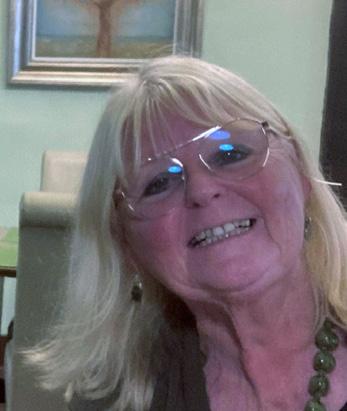
Gaining the input of those with lived experience is invaluable within any profession. It is only when we learn from those experiences, both positive and negative, that we are able to truly inform our practice and strengthen the values that underpin our role.
It was a great opportunity to spend time with Sue and her family and learn about their experiences of social work. It was both insightful and educational and has not only contributed to work I am undertaking with Bournemouth University, but also my own practice as an experienced Social Worker.
Robert Murray Social Worker (Co-author)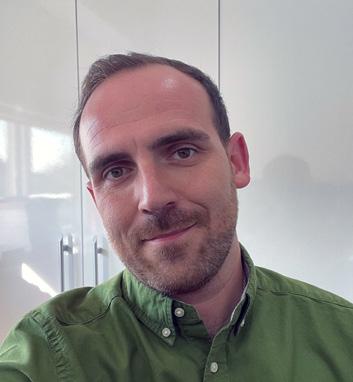
Chapter three: Being in Care, Shannon Cullen and Richard Williams
My name is Shannon Cullen and I am a 26-year-old care leaver. I have recently finished a social work degree at Bournemouth university with a 2:1. I never ever thought I would be where I am today.

I wrote a chapter about being a child in care which included many feelings that I felt growing up and as a young adult. I discussed a lot of my life growing up and whilst the support I received from my grandparents was amazing, I feel as though social services let me down in many areas of my life.
I really enjoyed writing a chapter in this book and I felt so privileged to be able to write this chapter with such an amazing person, Richard Williams. We connected through this chapter and our relationship blossomed which allowed us to be 100% true to each other. He was able to understand me and how I felt. At times it was tough, as it sometimes felt like I was having to re-live moments of my childhood nightmare, however I believe that the best way to get over something is to re-live it and all in all this has made me a much stronger person.
I am proud to tell my story as so many care leavers get frowned upon, the second you say that you are a care leaver it’s almost as if people/professionals expect you to do wrong. There is such a bad energy around care leavers and children being in care that I just wanted to show that not all are the same. I believe that having a strong bond with the person you are working with helps you to grow in many areas, which is told throughout my chapter.
I wasn’t just involved in writing my chapter, but I also got to help with various other aspects such as choosing the front cover to the book. This made me feel so much more than just a ‘contributor’ to the book, it made me feel a part of the whole book, instead of just my chapter. It was such an amazing experience to be able to do this and I would never turn down another opportunity like this, if it came up again.
I am a proud care leaver and I try and spread positivity about care leavers and children in care wherever I can. Because with the right support, you can be and do anything that you set your heart on.
Shannon Cullen Author
With physiotherapy colleagues, three PIER members: Rachel Jury, Tom Easterbrook and Sophie Buckley co-authored three journal papers which were submitted to the open access journal: Open Physio. In September 2014, the physiotherapy regulator for England and Wales (Health and Care Professions Council) introduced an education and training standard requiring service user and carer involvement in all approved programmes (HCPC 2018). Despite this, we could only find two published papers discussing public involvement in physiotherapy education, both of which pre-date the regulatory requirement. There had been nothing since. The editor of the journal was hugely supportive and from our first contact was keen to publish the papers as a series. Over three papers, we presented three case studies critically reflecting on the involvement of people with lived experience in the BSc Physiotherapy degree programme at BU.
Case study one was called: Reflecting together to enhance teaching outcomes by Rachel Jury (PIER member), Vikram Mohan (physiotherapy academic) and Mel Hughes and focussed on how designing an activity together from the start improves the experience for all involved.
Case study two was called: Harnessing the expertise of people with lived experience by Tom Easterbrook (PIER member), Emma Blackman (physiotherapy student), Katey Collins (physiotherapy academic) and Mel Hughes and focussed on a ‘Dragon’s Den’ activity and the value of PIER members giving feedback and guidance to students.
Case study three was called: Developing equal partnerships by Sophie Buckley (PIER member), Louise Fazakarley (physiotherapy academic) and Mel Hughes and focussed on the nature of the relationship between the academic and the person with lived experience and the benefits of genuine and meaningful collaboration.
All three papers have been published online for open peer review. What is incredible is that these are the first co-produced journal articles focusing on public involvement in physiotherapy education, published in a physiotherapy journal. This places the BU PIER partnership at the forefront of developing evidenced informed public involvement activity in physiotherapy education in the UK. It is also fantastic to see Rachel, Tom and Sophie, yet again become published authors sharing their lived experience expertise.
In our educational activities in 2021-22, we planned and delivered sessions with 56 different PIER members and 54 academic members of staff, providing nearly 1,000 contact hours between people with lived experience and BU staff and students. We have also worked with a range of external organisations who offer support to service users and carers and were able to provide insight into the services they offer and issues they face.
Year on year we continue to build our repertoire of innovative, engaging educational activities; designed to enhance learning and impact on future practice. As there are so many examples, we have chosen to shine a spotlight on just one within the unit, Clinical Pharmacology & Medicines Management.
Martha, Peter Latchford and Jane (PIER members) share their experience of collaborating on this unit.
The goal was to present service users’ feelings about the physical, mental, and social challenges experienced as someone taking five or more medications daily for the treatment of one or more long-term conditions. The students were adult nursing and mental health students. We wanted them to better understand the human side of taking multiple medications. Their prescription can often be seen purely as a clinical process.
We shared our stories in a 1:1 recorded interview, anonymity was an option, and some chose for audio recording only. The interview included an explanation of our long-term health conditions, the medications prescribed and their impact, and who prescribes and reviews the medications. Students were expected to listen to the interview as part of their introduction to the unit, to prepare questions and discussion points before their service user presentation. The students’ preparation was mixed. Though many had done the preparatory work, some had not. Those that had prepared, got the best out of the session.
The session started with a PIER member talking about the reality of taking five or more medications daily; following the same format as the video story but with the addition of more real-life examples followed by a question-and-answer session. The first run of this activity was online and the second was face-to-face. We found that the online presentation was more formalised and lacking in human engagement. However, it does allow a greater variety of service users to be involved, which benefits learning. In terms of the impact of the session on student learning; though not tested it was felt that students who had listened to the video stories were more involved in exploring the service user’s viewsan area that might be investigated in the future.
I felt really liberated after recording my day-to-day experiences of taking multiple medications, I equally felt quite exposed and vulnerable. I enjoyed the breakout rooms and seeing faces of students once they had hopefully listened to my recording. We had a short time to answer questions from them, and some remained silent and muted which I found slightly rude.
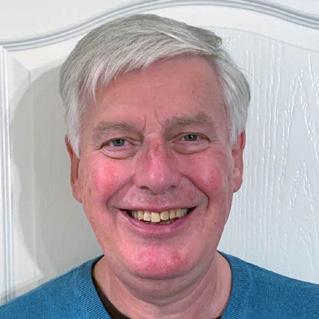
I particularly enjoyed the face-to-face discussion and questions in a classroom setting. The students had all listened to the recording this time. I was very open about the true reality of living with a long-term health condition and how this is managed with poly pharmacology. I felt strangely more comfortable to bare my soul a little to this group of keen looking students.
I had some interesting engaging questions, and some students shared their personal experiences of family that they had with the same health condition as myself. The lecturer also interjected a little and tried to engage the students who were quieter, and less extrovert in questioning me, which was helpful.
The feedback was really super! For the most I was told all sorts of wonderful comments about how I had inspired them and how brave I was. I was only too glad to share my story of my realities (like Peter and Jane) and hoped that I could help them be better prepared and mindful of what we had brought to these sessions in our shared experiences for these staff nurses of the future.
My experience of the sessions was that students were able to gain insights into difficulties for patients such as the absence of regular reviews, complications surrounding when to take medication and how daily life can get in the way, enabling a holistic view when patients have several health conditions, side effects, compliance and the importance of welldeveloped communication skills on the part of healthcare professionals.
Students were generally very engaged with the sessions and asked some thoughtful and insightful questions. The feedback received was very positive and several suggestions were made as to how the sessions might be improved in the future. All in all, we felt that this was a positive experience for both students and PIER members.
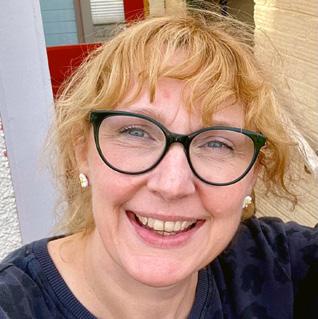

PIER input on the Clinical Pharmacology and Medicines Management unit plays a significant role in bringing the human aspect to the use of medicines in health care and challenges the student to see past the diagnosis or symptoms, and see the person behind the medication. Student feedback consistently showed value in helping them see medicine management from the persons perspective and gain greater understanding of the complexity of this aspect of care provision. Without the PIER input it would be very difficult to get this across to students who value the opportunity to ask questions in a safe learning environment and can see how these sessions fit with the intended learning outcomes.
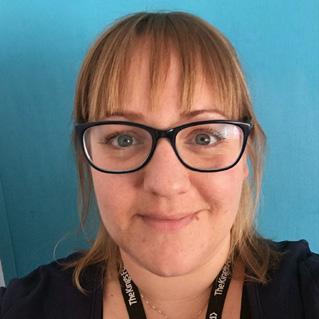
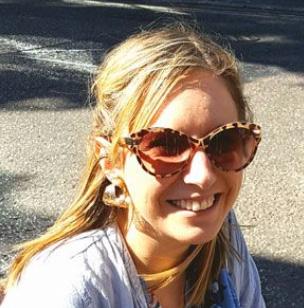
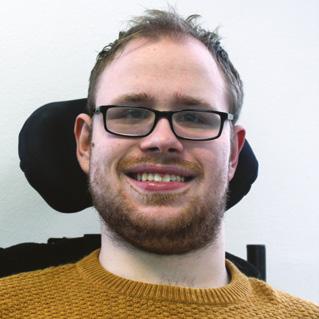
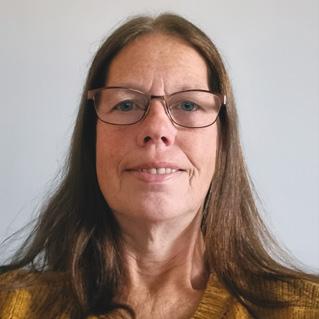
To start with I (Rachel) and Tim (PIER member) met quite a few times with Mel and Angela to scope out ideas and visualise what this course would look like. This involved a lot of coloured pens and post-it notes! The course was delivered online with the three of us (Rachel, Tom and Julie) being part of the teaching team, alongside Mel and Angela, and took place every Tuesday over five weeks. There was a lot of learning throughout the course for us and the students. The students came into the course with some expectations but were soon faced with re-evaluating how they do PPI (public and patient involvement). It gave them the tools to go out into the general public and really harness the knowledge whilst working side by side on their given subject. It was amazing to see the changes in the students’ view of PPI; some changed their research idea due to realising they were not conducting PPI correctly.
I felt this course was revolutionary not only for the students but for myself. I was getting disheartened and burned out with PPI, particularly regarding research. Seeing how these professionals changed their perspectives and considered whether they were doing true co-production has given me my fire back. The session where the students were asked to take a walk in my shoes was impactful. We didn’t realise how much this would affect some students personally and our learning as a team would be to make sure we announce at the beginning a trigger warning.
I still can’t believe just how well this went and can’t wait to be involved in more but more importantly, for co-production to be implemented across all courses.
Being part of the PPI course was a truly unique experience. Being able to take part in the full life-cycle of education is a very rare opportunity in the context of the partnership, it was a joy to support and influence participants and their perspectives.
As a facilitator, it was great to share my experience but also personally to learn new and enhance existing skills. It was a privilege to play a full and active role in the unit’s delivery which clearly rubbed off on the students.
As a PIER member, I really enjoyed being part of this course as a joint facilitator and all of the students seemed to learn a lot. I realised that in order to speak to the general public on their given subject it took them out of their comfort zone. They had to break down their barriers and not only treat the person as their equal but also be aware of any triggers on either side. Personally, it was a first for several things: I had never facilitated a course (which was daunting initially), I had never participated in research from start to finish, which was enlightening. I was a facilitator from the very start of the course to the marking at the end (equally daunting and completely out of my comfort zone). Usually if we are asked to participate in a research project, we only see a tiny part of it, we don’t hear anything further. This was discussed in the course; to always communicate with the PPI member, which in the future will open it up to more and more people. Hopefully, going forward it will change the way researchers will communicate with the general public.
Rachel Jury, Tom Easterbrook and Julie PIER membersWhat did our learners think?
“This module has been extremely enjoyable and such an important basis for early researchers or staff working on service redesign and development. I would definitely recommend to my colleagues.”
“I have absolutely loved this module. The co-production is a perfect blend of theory and thought- provoking challenges.”
We had a dream and that was to produce a master’s module on public participation in research completely co-produced right from the get-go.
An exciting development this year has been the approval of a PhD supervisor based on their lived experience expertise rather than academic expertise. Typically, PhD students have a supervisory team of two or three supervisors who are considered experts in the field. These are usually academic researchers with PhDs themselves. For research students exploring public involvement in research however, it felt important to us that we harness lived experience expertise too. This was supported by the Health & Social Sciences (HSS) Faculty’s Deputy Dean for Research and the BU Doctoral College, as well as Lynn Laidlaw, a public contributor with a wealth of lived experience and expertise, who was approved as a Visiting Fellow at BU and as a PhD supervisor for Louise. They share their thoughts on this here.
I met Mel, who invited me to become one of Louise’s PhD supervisors, through some mutual acquaintances as a result of my involvement in health and care research. I am an experienced patient and public contributor, working with individual researchers and organisations across the U.K. and have also just finished a co-produced qualitative research project. I don’t have any formal research qualifications myself.
I was delighted to be asked to help co supervise Louise’s project as the topic, online involvement in research, is something that I have much practical experience of. We meet monthly to discuss the PhD and help plan activities such as the systematic review. My role is different to the academic supervisors and I feel it acknowledges, and values, the different types of knowledge that people possess, it’s not just academic knowledge that is important.
It’s been a fantastic experience so far working with Louise and the supervisory team, I have learned so much as well as hopefully contributing. I became a visiting fellow at Bournemouth University to help facilitate the role, I love the way we are pushing the academic boundaries. Although public contributors have been involved with PhDs it’s unusual to become part of the direct, supervisory team. I feel a great sense of responsibility towards the role and the trust that has been placed in me, and it’s also increased my respect for people like Louise who commit to doing a PhD, work incredibly hard and are the future of research.
I work at BU and in September 2021 started a parttime PhD within HSS. My topic is on public involvement so it seemed very appropriate that Mel was one of my supervisors. In very early discussions with my supervisory team, we thought adding a member of the public as one of my supervisors was essential, given the nature of my project. Lynn kindly took up the role and fitted seamlessly into the team.
The role is more than just mentoring, Lynn is a fundamental part of the team, an equal team member; bringing a wealth of knowledge and experience. I’ve learned a lot in a very short space of time from Lynn, our discussions really help me see things from an alternative perspective. Lynn challenges my thinking and her thoughts and expertise will undoubtedly have a positive influence in shaping my PhD, generating ideas I’d not have even considered without her.
I really value Lynn’s support and feel very lucky to have someone so enthusiastic onboard and who motivates me to think outside the box.
Key objectives in our PIER partnership five year strategy were to harness the knowledge and expertise of PIER members and increase external collaboration and impact. There is now a strong evidence base to show that involving people with lived experience expertise in research from the beginning, leads to research which is more relevant, of higher quality and more likely to improve outcomes for those directly affected. How and who we involve though takes careful thought and planning. In this year’s report we reflect on a two-day workshop facilitated by Lee-Ann Fenge, Professor of Social Care, Mel Hughes and two arts facilitators to enable PIER members, who identify as disabled, to explore the concept of disability and ageing and to shape this into a funding bid for further research.
empowering and emotional when we shared our legacies with the group, it showed how unique we are, and everyone had achieved more than they realised.
The group are continuing to work together to use these insights to apply for funding to conduct a co-produced research study into disability and ageing.
A group of eight PIER members took part in this two-day arts-led workshop run by Documental Theatre on the 7th and 8th of June 2022. The workshops were held to generate insights for a collaborative research bid in disability and ageing. It was an inclusive event with people with a wide range of physical and mental health conditions and a good spread of ages and different lived experiences.
Although the workshops were facilitated by the Documental Theatre it was user led and everyone had a chance to speak and be heard. Professor Lee-Ann Fenge and Dr Mel Hughes, attended to listen but didn’t steer the workshops. Their involvement made participants feel that our views and experiences are valued.
We covered many topics that affect our lives as we age. From leaving school, becoming independent, finding a suitable and affordable home, work, education, relationships, parenting, young carers, accessing health services, and problems getting appropriate treatment.
Using an arts-based approach helped us explore challenging issues in a thought-provoking way, including:
• Making a collage using images to express ourselves in a visual way, exploring who we are as people not just patients – it gave us a chance to express ourselves in a new creative way.
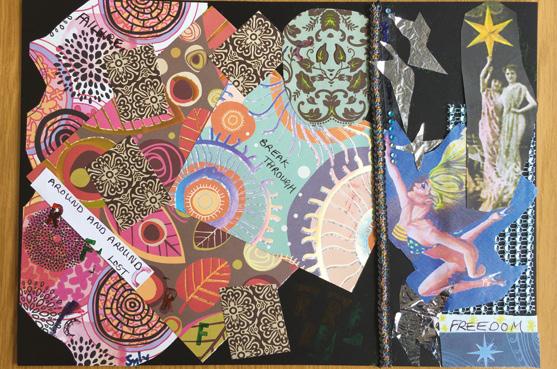
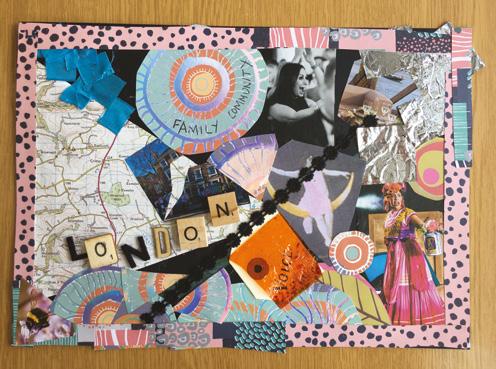
• Carrying out a roleplay in pairs, using scenarios of dating with different disabilities and the challenges of relationships.
It was a light-hearted way of communicating the impact of disability. Facilitators recognised that as individuals we didn’t really value or even recognise our value and contributions to society. We agreed to write our legacies on paper we made into scrolls tied in ribbon. It was very
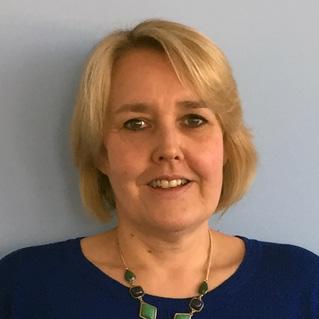
The main factor for me of our work together is that we were engaging with people with huge experience and who are experts in the subject of living with a disability through the whole life course. For me the key to enabling a better approach to providing supportive services for all disabilities is about involving experts by experience. Enabling people with expert lived experience to be part of the decision-making process is vital to ensure that service providers have an informed approach and that services reflect real need.
There has always been a dilemma in participatory research about how the initial idea for research is generated. Academics often develop an idea before involving ‘experts by experience’ in the research process. We have striven to challenge this ‘top-down’ approach by working with PIER members to co-develop the focus for research from the outset and before it is submitted to a funding panel. Using arts-led workshops we have considered the topic of ageing with a disability with the aim of co-producing the focus of the research, as well as a commitment to work with PIER members as co-researchers throughout the research process. Arts-led approaches provide a means of communication which enhance successful partnership working, enabling PIER co-researchers to frame the issues that are important in their lives within the research process. This is an inclusive and novel way of generating the focus of research and ensures that we adhere to the principles of participatory research from the very beginning.
Developing research through arts-led collaboration two-day workshop
As well as involving members and community partners in developing user led and co-produced research bids, we have been working to develop a culture and framework at BU for researchers to collaborate with external partners. Our aim is to amplify lived experience voices and expertise throughout the research cycle. Three collaborators reflect here on the impact of this involvement and plans for the future.
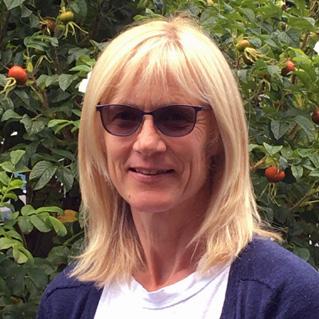

The Research Design Service South West (RDS SW) has continued to enjoy and strengthen links with Bournemouth University PIER partnership. We have some members of PIER who continue to be actively involved in the core business of RDS SW – providing lay reviews of health and social care projects aiming for submission to national research funding competitions; sitting on mock fellowship panels for early career researchers and helping design research – including a project about the emotional labour involved in the role of the Public and Patient Involvement (PPI) lead. RDS SW PPI colleagues, Sarah Thomas, Louise Ward and Helen Allen also joined the PIER team at the PIER staff away-day in May. A wonderful opportunity to meet face-to-face and develop plans to work collaboratively
Thomas, Deputy Director BUCRUThe remit of the Bournemouth University Clinical Research Unit (BUCRU) is to improve the quality, quantity and efficiency of health and care research across Bournemouth University and local NHS Trusts. BUCRU hosts one of four National Institutes for Health and Care Research (NIHR) Research Design Service (RDS) hubs in the Southwest Region. With the NIHR’s increasing prioritisation of meaningful Patient and Public Involvement (PPI) and partnerships throughout the research process the PIER partnership is central to BUCRU’s remit. BUCRU and PIER have been working together to support and provide guidance to researchers to ensure that meaningful service user and carer involvement is embedded into their research in ways that meet and exceed PPI requirements by funding bodies.
The current NIHR RDS contract comes to an end in September 2023 and is to be replaced by a Research Support Service model. BUCRU will continue to work in close partnership with PIER to ensure expertise in Saldom Heard Voices, community partnerships and co-production will form part of the offer for the new RSS bid.
with members of the public and communities to increase the public voice in the research that Bournemouth University and RDS SW support.
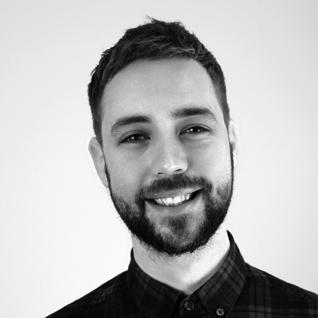
Looking to the future, PIER members (staff and public contributors) will remain actively involved in conversations with RDS SW about further strengthening our links within the new Research Support Service (RSS). The RSS will be replacing the RDS SW from October 2023. The new service will combine the research design expertise of the RDS SW with the research support currently offered by the Clinical Trials Units. Through our collaborations with PIER, this is an exciting opportunity to make sure that groups, communities and individuals, not yet involved with research, have opportunities to add their voices to the design, and conduct of health and social care research.
The collaboration between VOICE based at Newcastle University and the PIER partnership is now into its second year and is absolutely flourishing! Working with an organisation such as PIER has benefited VOICE significantly, from sharing learning and best practices, to combining our expertise and influence to shape funding proposals.
The PIER partnership’s crucial work to foster and sustain relationships with communities who are seldom heard in health and social care research has enhanced the work of researchers across our entire collaboration network which includes Edinburgh University, Imperial College London and Newcastle University.
It is very clear that the PIER partnership and VOICE share the same core values of inclusion, diversity, empowerment and working to democratise public and patient involvement in health and social care research. We are thrilled to continue on this journey together!

As all of the examples in this year’s report show, we have a growing wealth and breadth of lived experience expertise within the PIER partnership. Year on year, Pete, Angela, Mel and now Kate are approached by an increasing number of external organisations for information, guidance, support and requests to collaborate on the development of public involvement in education, research and practice. In 2021-22 this led to collaborations with Dorset Clinical Trials Unit, Dorset Innovation Hub, Help and Care, National Institute for Health Research (NIHR), Social Work England, Care Quality Commission and the Health Foundation, amongst others. We were particularly pleased to have been able to contribute to the NIHR’s thematic review and subsequent report: Supporting equity and tackling inequality: how can NIHR promote inclusion in public partnerships with Mel as a member of the steering group.
Not only have these opportunities enabled us to share our experiences and evidence for best practice; they enable us to learn from external partners and have led to opportunities for PIER members to contribute to national developments and join new public involvement groups. This is the case with our continued involvement with VOICE network and digital platform. In addition to BU researchers being able to connect with people with lived experience across the UK with a wide range of experiences and expertise; it has led to BU PIER members advising and informing studies at Newcastle University, Imperial College London and University of Edinburgh on topics ranging from long covid to breaking down breast screening barriers.
Throughout the year 2021-22 we presented at 11 external conferences and events. These ranged from an international online presentation on Challenges and Enablers for Engaging Seldom Heard Voices in Research at a seminar organised by Centre for Evidence-based Psychosocial Interventions (CEPI) which included researchers from across Sweden including Stockholm University and Umeå University. Also, Rachael Jury, Mel Hughes and Angela Warren presented in person at the UK Clinical Research Facility Network Annual Conference where we provided a 30-minute taster session on our co-produced public involvement in research Masters level unit. The co-produced and delivered unit has been a particular highlight with 15 researchers completing the first delivery of the unit in July 2022 having developed some fantastic approaches to harnessing lived experience expertise in their research activity.
We also continue to share our lived experiences and expertise through publications. As shared in the report, this year saw the development of two co-authored textbooks in social work and three co-authored journal papers in physiotherapy. This has enabled us to maintain our approach to have lived experience expertise front and centre of students and practitioners’ learning and development. We are now working across health and social science programmes to create further opportunities for co-authoring and presenting what we do and the impact it has.
A final example of using our voice and influence has been PIER involvement in a special issue of the British Journal of Social Work guest edited by Mel Hughes and colleagues, including those with lived experiences of social work, from the UK, Sweden, Israel and Australia. The Special Issue is written by people with lived experience rather than about people with lived experience. People with lived experience expertise are involved in all stages and levels of the special issue as guest editors, peer reviewers and authors. In addition to academic papers where the lead author has lived experience of the research being undertaken, the guest editors encouraged submissions in non-traditional formats so all potential contributors were able to submit in ways which worked best for them. Formats included academic papers, opinion pieces, narratives, artwork and poems. PIER members were invited to submit to the categories and formed a lived experience panel to review and select creative artefacts for the special issue. We look forward to the publication of the journal in Spring 2023.
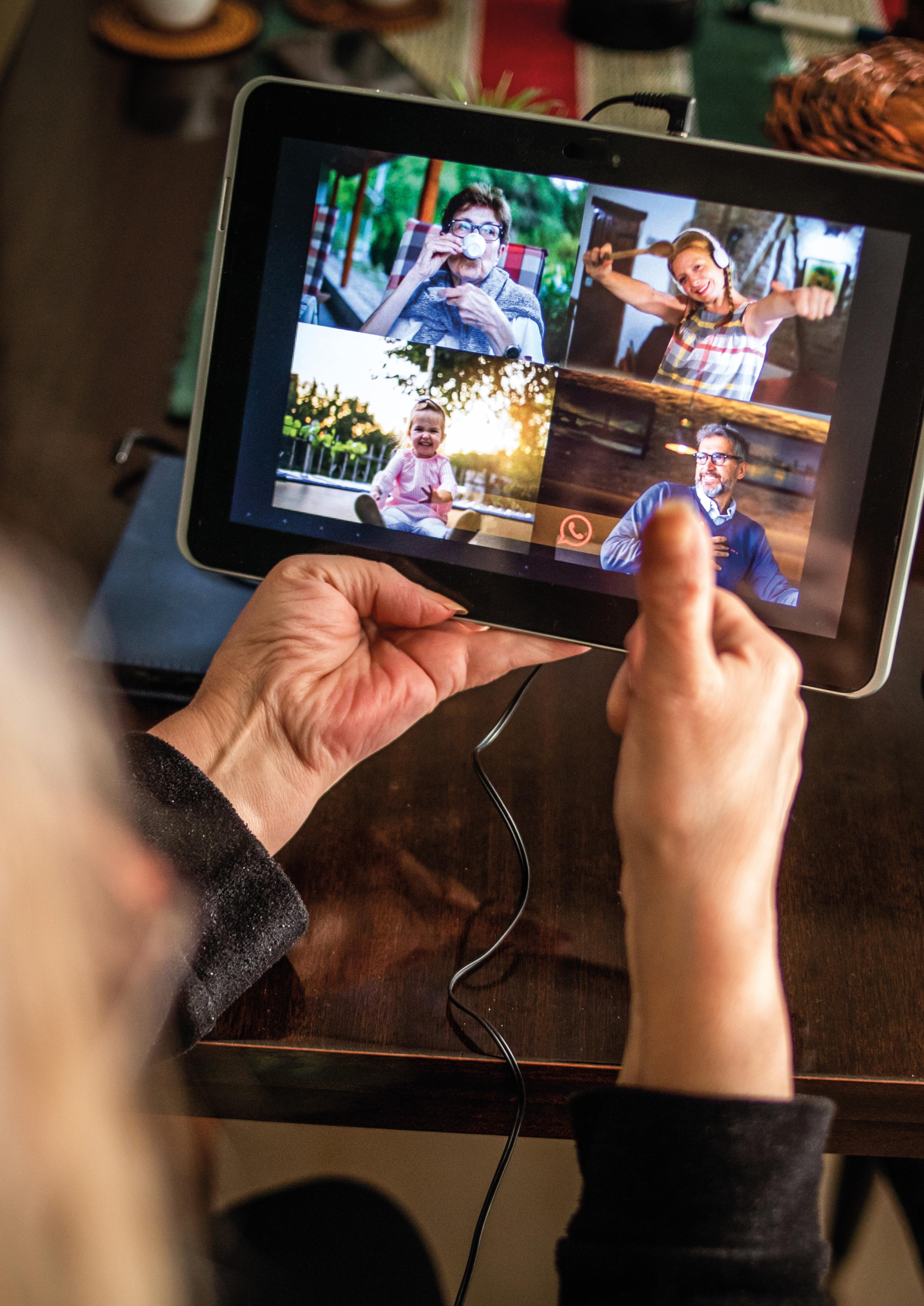
2022-23 will continue to be guided by our five-year strategy. The PIER strategy 2025 outlines the BU PIER partnership’s five-year plan for ensuring that the expertise of people with lived experience (including patients, potential patients, carers and people who use or represent people who use health and social care services) underpins and informs education, research and professional practice at BU. Back in 2020, we identified five key objectives in the strategy to align the work of the PIER partnership with the BU2025 vision and strategic plan.
BU PIER partnership 2025 key objectives: 1) Enhance the student experience 2) Increase research and knowledge exchange income 3) Harness the knowledge and expertise of PIER members 4) Increase external collaboration and impact 5) Contribute to the achievement of the UN Sustainable Development goals (SDGs)
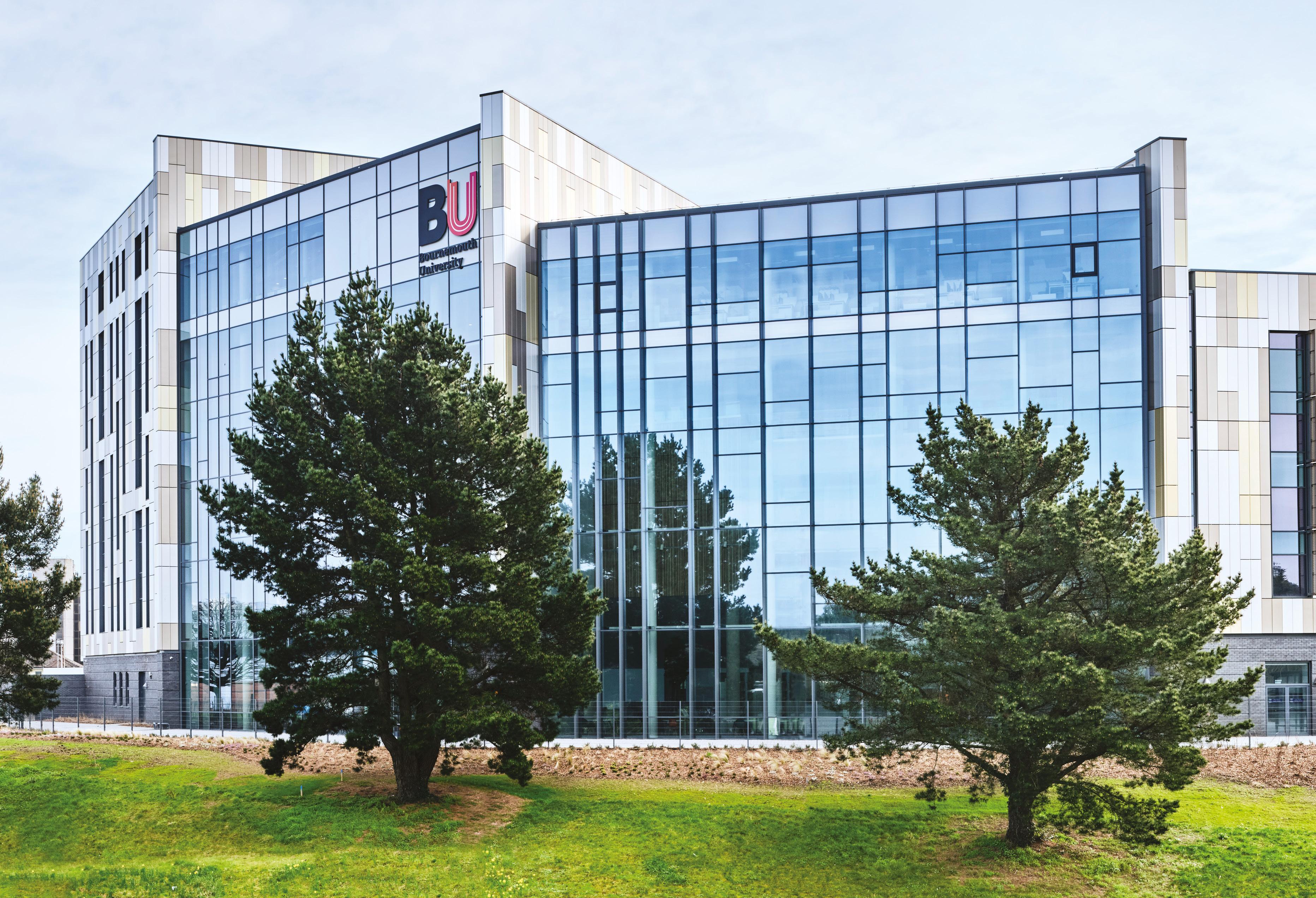
Objective five included specific commitments to the UN sustainable Goal 10 Reducing Inequalities and Goal 17 Partnerships for the Goals. The strategy included some bold ambitions for the PIER partnership and members to be
involved in opportunities across Bournemouth University in research and with health, social care and university partners externally. This year’s report clearly demonstrates how we are meeting and exceeding these goals. The coming year will enable us to strengthen some of these partnerships; develop joint funding bids for co-produced and community led research and increase involvement in research across the university as a whole. Our main focus will be on supporting colleagues to create a culture and framework that supports the development of inclusive involvement in education and research which effectively challenge inequalities and improve outcomes for people from the most marginalised communities.
Having such bold plans is possible due to the breadth and range of expertise across our partnership. We very much look forward to collaborating with you all in the coming year.
“I thought the session was really good and worked so well, it was very user led and the feedback to students was more me. I felt very valued.”
Keith Hunt involved in MA Social Work year one: Roleplay, November 2021
“Personally, I got a lot out of helping them and wish them well for the work in the future and I would love to do more like this in the future.”
Iain Sutherland involved in BA Social Work year one: Communication Challenges, September 2021
“I found this morning a positive time, the students were attentive and working with Sarah was a pleasure, our narratives complemented each other, and we worked well in partnership.”
Joy Ford involved in BSc Paramedic Science year one: Mental Health and Addiction, May 2022
“They are some of the most engaged students that I have come across in my 5 years being involved with PIER. I think we all enjoyed being involved in this session.”
Deborah Curtis involved in BSc Physiotherapy year one: Chronic Pain, June 2022
“Overall, the students were inquisitive and fun to talk to. Splitting into two groups was ideal and made it easier to engage with the students.”
Julia Gracey involved in BSc Occupational Therapy year one: Stroke and Parkinson’s, March 2022
“I found the experience to be very good, I was a bit worried at first as I was not sure how to relay my thoughts and experience, I think I shocked a few with some of my comments.”
Karen Wright involved in BSc Operating Department Practice year one: Cancer and MS, March 2022
“There was lots of engagement with the students. Lots of different people asked very good questions. The students were listening well and were interested in my experiences.”
PIER member involved in Clinical Pharmacology & Medicines Management
“My role within BU PIER as always has been very important to me, not only with the interaction with students but yourselves in the wonderful way you support members. It has enabled me in my own recovery as well as some members of my own family.”
Angie Lovell on her involvement with PIER